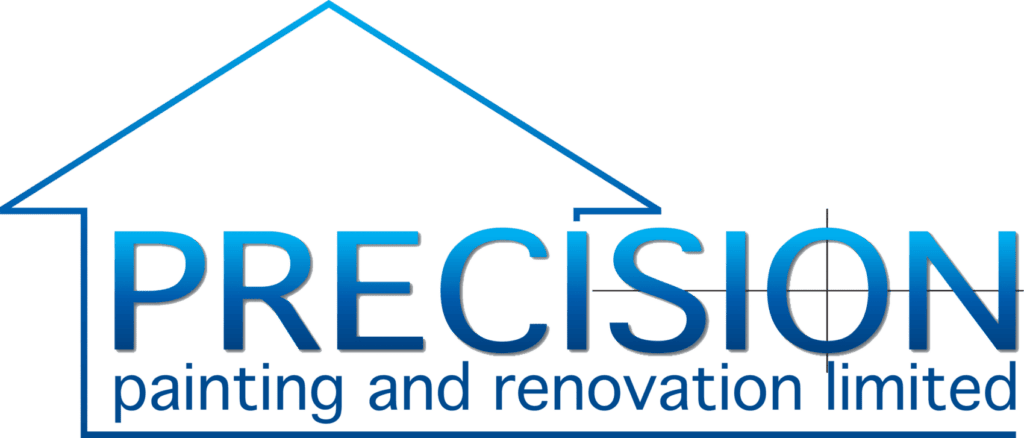Painting a home or commercial space is more than just applying a fresh coat of color; it’s about achieving a smooth, long-lasting, and professional-looking finish. Professional painters in Guelph emphasize the importance of wall preparation, particularly cleaning, before starting any painting project. Neglecting this crucial step can lead to poor paint adhesion, uneven textures, and a finish that deteriorates quickly.
The Importance of Cleaning Walls Before Painting
Painting over dirty walls might seem like a time-saver, but it can cause several problems in the long run. Dust, grime, grease, and even invisible residues accumulate over time, creating a barrier that prevents the paint from adhering properly. Here’s why professional painters recommend a thorough cleaning process before picking up a brush or roller:
1. Ensuring Proper Paint Adhesion
One of the primary reasons for cleaning walls before painting is to promote strong adhesion. Paint adheres best to a clean and dry surface. When dust or oil is present, the paint struggles to bond with the wall, leading to peeling or flaking over time. By removing contaminants, painters ensure that the paint grips the surface effectively, resulting in a smooth and durable finish.
2. Preventing Paint Failure
Skipping the cleaning process can lead to paint failure, which includes blistering, cracking, and chipping. This often happens when contaminants like dirt, grease, or mildew interfere with the paint’s ability to form a solid, lasting layer. Investing time in cleaning prevents premature paint damage and extends the lifespan of the painted surface.
3. Achieving a Smooth and Professional Finish
A clean surface allows for an even paint application, reducing streaks and inconsistencies. When dust or grime is left on the walls, it creates texture, making the final coat look rough or blotchy. Cleaning ensures that the wall is smooth, giving the paint a polished and professional appearance.
4. Removing Stains and Odors
Walls absorb stains from food, beverages, smoke, and other sources over time. These stains can seep through fresh paint, causing discoloration. Additionally, lingering odors from smoke or mildew can become trapped under the paint, affecting indoor air quality. Cleaning walls eliminates these issues and ensures that the new paint color remains true and vibrant.
5. Identifying and Addressing Wall Damage
Cleaning walls provides an opportunity to inspect the surface for cracks, holes, or other imperfections that need repair. Painters can identify problem areas and use filler or caulk before painting, preventing these flaws from becoming more visible after the paint dries.
How to Properly Clean Walls Before Painting?
For the best painting results, professional painters follow a systematic cleaning process tailored to different types of walls and contaminants. Here’s a step-by-step guide to achieving a perfectly clean surface before painting:
1. Dusting and Dry Cleaning
Start by dusting the walls using a microfiber cloth, duster, or vacuum with a brush attachment. This removes surface dust, cobwebs, and loose particles. In areas with heavy dust buildup, a dry sponge can be used to wipe down the surface.
2. Washing with Mild Detergent Solution
A mixture of warm water and mild dish soap is effective for removing everyday dirt and grime. Use a sponge or soft cloth to gently wash the walls, working from top to bottom. Avoid soaking the walls excessively, as too much moisture can damage drywall.
3. Dealing with Grease and Stubborn Stains
Kitchen walls, especially near cooking areas, tend to accumulate grease. A solution of water and degreaser or vinegar can break down grease stains effectively. For stubborn stains, a mixture of baking soda and water can be applied as a gentle scrubbing paste.
4. Removing Mold and Mildew
If mold or mildew is present, it must be treated before painting. A solution of one part bleach to three parts water can kill mold spores and prevent regrowth. Ensure proper ventilation while using bleach and wear protective gloves.
5. Rinsing and Drying the Walls
After washing, wipe the walls with a damp cloth to remove soap residue. Allow the walls to dry completely before proceeding with painting. Using fans or opening windows can speed up the drying process.
Additional Preparations for a Flawless Paint Job
Once the walls are clean, additional preparation steps enhance the final result.
1. Sanding for a Smooth Surface
Even after cleaning, walls may have minor imperfections. Lightly sanding the surface smooths out rough patches and helps the paint adhere better. Wipe away dust with a damp cloth after sanding.
2. Applying a Primer
Primer creates an even base for paint, improves adhesion, and enhances color vibrancy. It is especially important when painting over dark colors, new drywall, or patched areas.
3. Using Painter’s Tape for Clean Edges
To achieve crisp lines and prevent paint from bleeding onto trim or ceilings, painter’s tape is applied to edges and corners.
Common Mistakes to Avoid When Preparing Walls for Painting
Avoiding common mistakes ensures a smooth and long-lasting paint job:
- Skipping the Cleaning Step: Even if walls look clean, unseen dust and oils can interfere with paint adhesion.
- Using Harsh Chemicals: Strong cleaners can damage walls and affect how paint adheres. Mild soap solutions are usually sufficient.
- Not Allowing Walls to Dry Fully: Painting over damp surfaces can cause bubbles and uneven drying.
- Ignoring Repairs: Small cracks or holes become more noticeable after painting, so addressing them beforehand is crucial.
Why Choose Precision Painting?
When it comes to professional painting services, Precision Painting stands out for its attention to detail and commitment to quality.
- Thorough Preparation Process: From cleaning and sanding to priming, every step is meticulously handled to ensure a flawless finish.
- Experienced and Skilled Painters: A team of trained professionals brings expertise to every project, whether residential or commercial.
- Use of High-Quality Materials: Only premium paints and tools are used, ensuring durability and a stunning appearance.
- Customer Satisfaction Guaranteed: A commitment to excellence means every project is completed to the highest standards, with client satisfaction as the top priority.
Choosing Precision Painting means investing in a professional approach that delivers outstanding results. With a focus on preparation and quality craftsmanship, every paint job transforms a space beautifully and lasts for years.

